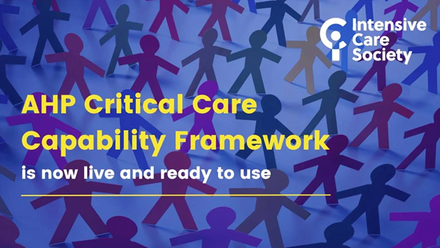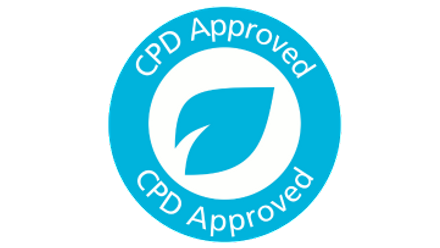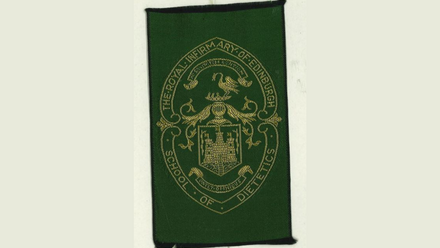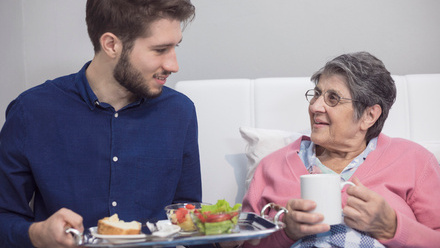You may not feel like eating or you eat less than you used to eat before your critical illness. This is called ‘poor appetite’ and it is very common after critical illness. You may also feel full quickly when eating. This is called ‘early satiety’. These symptoms mean it can be difficult to get the nutrition that you need.
Why do I have poor appetite or feel full up quickly?
It is not entirely understood why these symptoms happen after critical illness. It is thought that being very unwell causes the body to release a number of hormones. These hormones can reduce appetite signals from the brain or make our stomach empty more slowly and so we feel fuller. If you have these symptoms and it affects how much you can eat, it means you can lose weight when you don’t want to.
How can I make sure I eat enough if I feel this way?
You will need a have a diet high in protein and energy so that every mouthful makes a difference. You can do this by eating more of the right foods and drinks or by adding more energy or protein to them (which is called fortifying or enriching).
Eating ‘little and often’
If you are finding eating difficult, having a full plate of food in front of you can feel overwhelming. One way to help this, is to eat smaller amounts more often during the day. You can do this by having snacks in between meals and before bed so that you eat every 2-3 hours (about 6 times a day).
Here are some high protein and energy snack ideas:
|
fruit with cream/custard |
creamy yogurt |
crème caramel |
|
custard tart |
custard pot |
rice pudding |
|
trifle |
mousse |
Cheesecakes |
|
biscuits |
cakes |
mini chocolate/cereal bars |
|
nuts |
cheese/pâté and crackers |
cheese cubes |
|
crisps |
savoury biscuits |
bread sticks with humus/dips |
|
olives |
sandwiches |
salmon rolls |
|
small pieces of pizza |
flan |
pork pies |
|
pasties |
scotch eggs |
sausage rolls |
|
pakoras |
Bombay mix |
halva |
|
bhajis |
spring rolls |
crumpets |
|
bagels |
muffins |
scones |
|
croissants |
toast |
breakfast cereal |
Here are some other tips to help you eat:
- eat whenever you feel hungry– like having cereal at midnight
- try not to drink just before meals as this may fill you up and spoil your appetite
- avoid fizzy drinks as they can make you feel full up
- have ready-made meals in the fridge or freezer which you have either bought or made yourself
- a short walk before a meal or some fresh air may help you feel hungry.
How can I have more energy and protein?
If you find you can only eat small amounts of food at each meal and you need to gain weight, it can help to eat foods and drinks that are high in energy and protein. This will help you get more nutrition without having to eat more food.
If you need to gain weight, start by having full fat foods. Avoid “light” or “diet” versions, these are not right for you at the moment if you need to have more energy.
If you have diabetes or high blood cholesterol, please ask your doctor or dietitian for advice on foods high in energy or protein that are good for you to eat.
You can also add things to foods or drinks to give it more energy or protein. This is called fortifying or enriching, and there are tips on how to do in the following section.
Tips for fortifying your foods and drinks
There are many ways to add extra energy and protein to your food, like:
Savoury foods can be fortified, by adding:
- beans, pulses or ground nuts and seeds to soups and casseroles
- cheese, milk, milk powder, butter, margarine or olive oil into mashed potato
- butter, full-fat margarine, cheese or white sauce on vegetables
- 2 tablespoons of milk powder to a portion of white or cheese sauce
- cheese/cream/milk or crème fraîche to soup
- cream/sour cream/crème fraîche or coconut milk to casseroles and curries
- mayonnaise/salad cream or pesto to sandwiches or have two fillings, such as: egg mayonnaise and bacon or cheese and ham.
Sweet foods can be fortified by:
- adding cream, custard, condensed milk, evaporated milk, fortified milk, or ice cream to pies, sponge or fruit
- adding extra sugar, honey or syrup to desserts and cereals
- making jelly with fortified milk, instead of water
- adding 2 tablespoons of milk powder to a portion of porridge, milky puddings and custard
- adding cream, yoghurt, sugar, honey, condensed/evaporated milk or dried fruit to breakfast cereals.
If you are worried about having too much fat, or if you have been advised to lose weight, then try to include more foods which contain fats that are healthy for your heart. Fats such as rapeseed oil, olive oil, olive oil spreads, avocado, nuts and seeds are high calorie and “heart-healthy”. Ask your GP or speak to a dietitian for further advice if you are worried about gaining too much weight.
Tips for increasing your protein intake
Eating foods high in protein will help build your muscles, especially as you are getting around more and may be doing exercise. If you have a kidney disease, please ask your doctor or dietitian for advice on how much protein you should have.
Try the following to increase your protein intake:
- have high protein foods at each meal from either poultry, meat, fish, eggs, beans, pulses, soya beans, cheese or nuts
- have a milky dessert between your meals like custard, rice pudding or a creamy yogurt
- fortify your milk by adding 2oz (4 tablespoons) of milk powder (such as Marvel or supermarket own brand) to 1 pint of full cream milk. Adding milk powder gives it extra protein and more energy
- use the fortified milk in drinks, on cereals, in sauces and puddings.
How can I have extra energy from drinks?
There are drinks you can have which are high in energy. For example:
- Hot drinks: hot chocolate, Ovaltine/malted drinks, milky coffee, latte, cappuccino, instant soups made with fortified milk.
- Cold drinks: milkshakes with added ice cream/cream, fruit smoothie (blended fruit with milk), ice cream/yoghurt with honey/malt. Ice cream soda (ice cream added to a fizzy drink). Fruit juice.
You can also have special drinks that are high in calories and protein (also called nutritional supplement drinks). You may have had these recommended during your hospital stay and advised to continue them until you reach a better weight, or you are eating full meals. If you are uncertain about how to take them, or how long for, please contact your doctor or dietitian for advice.
Nutritional supplement drinks come in a wide range of different types and flavours for example:
- Nourishing powdered drinks: Complan and Meritene are common brands. These are available from most chemists/supermarkets and it is worth trying these first before using the ready-made ones below.
- Prescription Nutritional supplement drinks: come in milkshake, juice or jelly varieties. They also come in various sizes. You may have had these in hospital and may have been told to continue them. The ones you get from your GP may have a different name (be a different brand) than those in hospital. Check with your pharmacist that they are similar (for example in protein content). If you are unsure about having these drinks, or you are not having them, but think they may help you while you are struggling with your eating or weight, speak to your dietitian or your doctor for advice.
Summary:
If you have a poor appetite, or feel full quickly when you eat, this should improve in time, but choosing a diet high in protein and energy, as well as having extra snacks and nutritious drinks, will help you get enough nutrition to help with your recovery.
More information:
British Dietetic Association Food Fact Sheet on:
NHS UK advice on:
See ICUsteps information for more information







